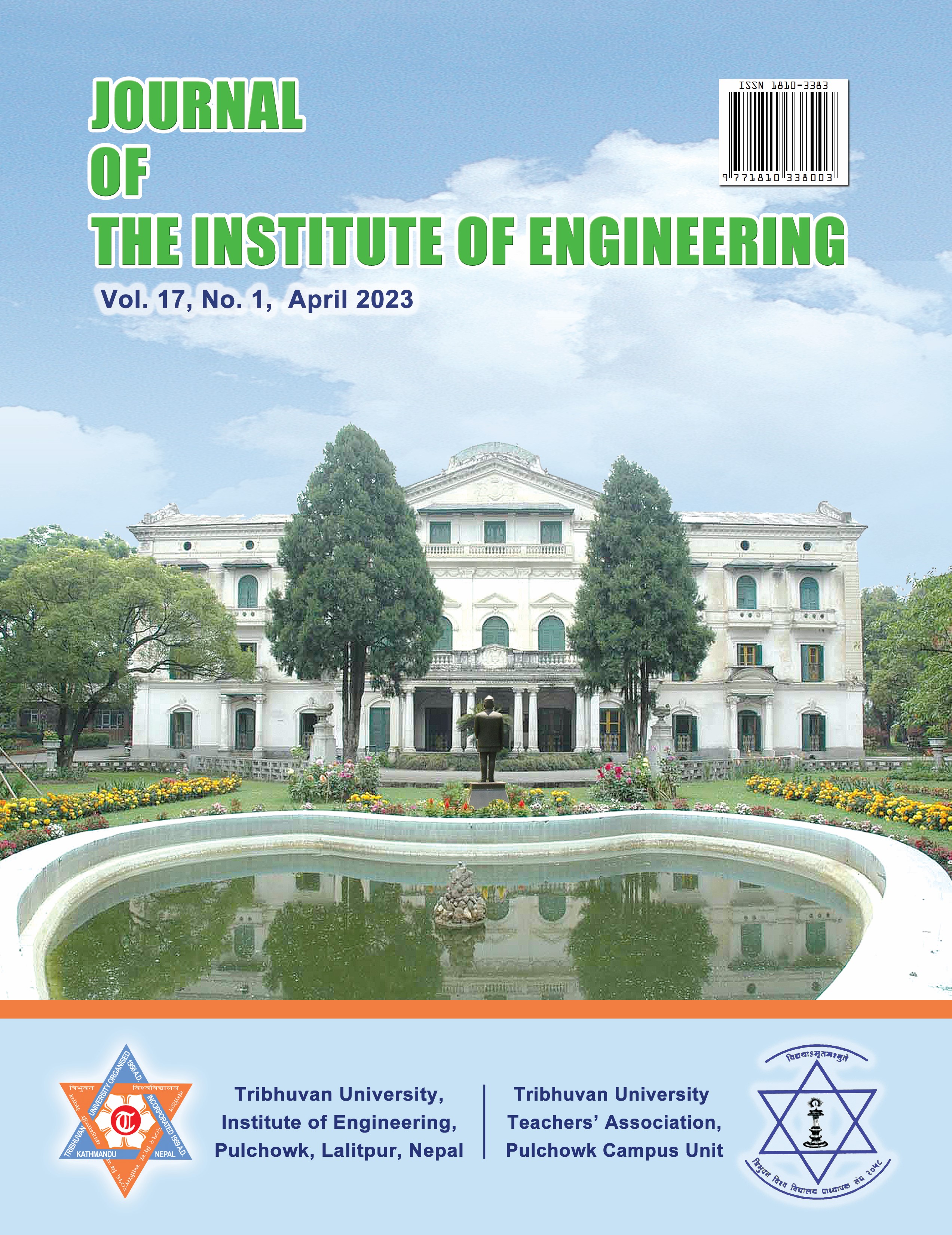Qualitative Evaluation of Reconstructed Masonry Residential Building after the Gorkha Earthquake 2015 in Rural Areas of Nepal: A Case Study at Bhalche, Nuwakot
DOI:
https://doi.org/10.3126/jie.v17i1.64591Keywords:
Gorkha earthquake 2015, Key informant survey, Non-compliance, Rapid visual assessment, ReconstructionAbstract
Unreinforced Masonry buildings (URMs) were the most prevalent construction practice in the rural areas of Nepal. During the 2015 Gorkha earthquake, most of these buildings suffered critical damage. Consequently, after the disaster, National Reconstruction Authority (NRA) was established to provide technical and financial assistance in the reconstruction process. This paper provides a qualitative framework for the assessment of masonry residential buildings in rural areas, considering the NRA minimum requirement, with Bhalche, Nuwakot as the study area. Rapid Visual Screening (RVS) and Key Informant Survey (KIS) were used to study, inspect and collect data and obtained results are compared with NRA minimum guidelines and Codal provisions. The study focuses only on a small but representative sample of reconstructed buildings rather than every building, with how and why of a particular issue rather than how many. The examination found that the reconstructed buildings in Bhalche have minor noncompliance issues, while significant noncompliance issues are found in all the houses constructed before the Government of Nepal’s (GON) initiatives for reconstruction by the local people themselves using available local resources and existing knowledge. The KIS and RVS results are supported by case study examples and photos, respectively. The study also reviews the current building typology in Bhalche and attempts to delineate the rationale contributing to the undesired discrepancy in reconstructed buildings.
Downloads
Downloads
Published
How to Cite
Issue
Section
License
The Copyright is held by Journal of the Institute of Engineering, IOE, TU




